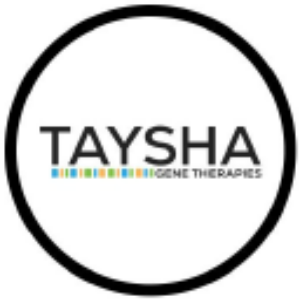Taysha Gene Therapies Announces Positive Preliminary Clinical Safety Data For First-Generation Construct In CLN7 Disease and Completion of Next-Generation CLN7 Construct Design
Taysha Gene Therapies (TSHA) reported preliminary clinical safety data for its first-generation CLN7 construct, demonstrating a favorable safety profile with no major adverse events observed. The Data Safety Monitoring Board supported dose escalation to the highest dose of 1.0x1015 viral genomes in humans. Upcoming results will be presented at the 18th Annual WORLDSymposium in February 2022. Additionally, Taysha has designed a next-generation construct aimed at enhancing potency and manufacturability while reducing immunogenicity risks.
- Preliminary clinical data shows no major adverse events from the first-generation CLN7 construct.
- Successful dose escalation to 1.0x1015 is a milestone in gene therapy.
- Plans for a next-generation construct to improve treatment efficacy and safety.
- None.
Preliminary clinical data for first-generation CLN7 construct support favorable tolerability and safety profile with no major adverse events across doses delivered
Data Safety Monitoring Board (DSMB) supported dose escalation from 5.0x1014 (n=1) to 1.0x1015(n=2), which is the highest dose delivered intrathecally in humans to date
Preliminary clinical efficacy and safety data to be presented at the 18th Annual WORLDSymposium in
Design of next-generation construct to improve potency, packaging efficiency and manufacturability as well as reduce risk of immunogenicity over first-generation construct completed
“We are very pleased that the first-generation construct has been well tolerated and preliminary data from the ongoing clinical trial support a favorable safety profile. To date, three patients with CLN7 disease have been treated, including two patients dosed at 1.0x1015 total vg, which is the highest dose ever safely administered intrathecally in humans for a gene therapy. The DSMB supported dose escalation from the 5.0x1014 initial dose to the 1.0x1015 high dose. Importantly, there have been no major adverse events observed. We look forward to Dr. Ben Greenberg’s presentation of the preliminary clinical efficacy and safety data at the upcoming 18th Annual WORLDSymposium in February,” said
UTSW continues to enroll patients in the investigator-sponsored clinical trial at Children’s Medical Center Dallas for the intrathecally dosed first-generation AAV9-based gene replacement therapy for the treatment of infantile CLN7 disease. The primary endpoint of the trial is safety and tolerability. Secondary efficacy endpoints include the Clinical Global Impression scales, assessments of neuropsychological and neurodevelopmental progression, ataxia and motor function, and quality of life. UTSW maintains financial interest in Taysha.
CLN7 disease is a rare, fatal and rapidly progressive neurodegenerative disease that is a form of Batten disease. CLN7 is caused by autosomal recessive mutations in the MFSD8 gene that result in lysosomal dysfunction and accumulation of abnormal material in the lysosomes of the cells. Disease onset occurs around two to five years of age, with death often ensuing in young adolescence. Patients experience gradual nerve cell loss in certain parts of the brain and typically present with seizures, vision loss, speech impairment and mental and motor regression. Currently, there are no approved therapies to treat CLN7 disease, which impacts an estimated 4,000 patients globally.
About
Forward-Looking Statements
This press release contains forward-looking statements within the meaning of the Private Securities Litigation Reform Act of 1995. Words such as “anticipates,” “believes,” “expects,” “intends,” “projects,” and “future” or similar expressions are intended to identify forward-looking statements. Forward-looking statements include statements concerning the potential of our product candidates, including the CLN7 program, to positively impact quality of life and alter the course of disease in the patients we seek to treat, our research, development and regulatory plans for our product candidates, the potential for these product candidates to receive regulatory approval from the FDA or equivalent foreign regulatory agencies, and whether, if approved, these product candidates will be successfully distributed and marketed, and the potential market opportunity for these product candidates. Forward-looking statements are based on management’s current expectations and are subject to various risks and uncertainties that could cause actual results to differ materially and adversely from those expressed or implied by such forward-looking statements. Accordingly, these forward-looking statements do not constitute guarantees of future performance, and you are cautioned not to place undue reliance on these forward-looking statements. Risks regarding our business are described in detail in our
View source version on businesswire.com: https://www.businesswire.com/news/home/20211222005114/en/
Company Contact:
SVP, Corporate Communications and Investor Relations
klee@tayshagtx.com
Media Contact:
carolyn.hawley@canalecomm.com
Source:
FAQ
What are the preliminary clinical results for Taysha Gene Therapies' CLN7 treatment?
When will the efficacy data for Taysha's CLN7 construct be presented?
What is the significance of the dose escalation in Taysha's CLN7 clinical trial?







